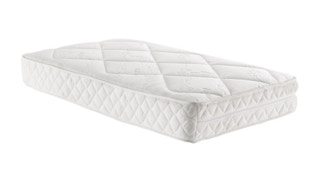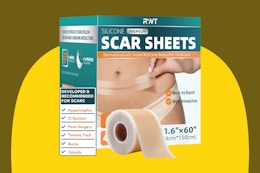
1. Don’t bother looking for a lower price
Many stores say they will beat any advertised price (or even that you will get the mattress free!) if you can find the same one someplace else cheaper. The truth is, you won't find a lower price. Furniture and mattress store chains work with the manufacturers to develop unique names for their mattresses; this allows the stores to have 'exclusives' and provides more flexibility in their pricing. For example, the same mattress could be called Sealy Posturepedic Cameron Falls in one store chain and be called Sealy Posturepedic Santa Ana in a different store. Since these model names are usually unique to each store, finding a lower price can be next to impossible. If you find a mattress you like, negotiate with the store and don’t bother shopping around.
2. Mattress prices are always negotiable
Mattresses are one of the most heavily marked up items available. Even if a mattress is on sale, try negotiating for a lower price. One expert suggested that you should never pay more than 50 percent of the list price. I'm not sure that’s true for every store—smaller regional stores do tend to try to offer decent prices—but for large chains it’s a good rule of thumb. Before you go to a store, research the percentage that store usually discounts any sale mattress. This will be your guide as to how much you can reasonably ask for. If it's a large chain store like Mattress Giant or Sleepy's, you know you can ask for at least 50 percent off, while a local store might only offer 10–15 percent off. Use their sales flyers as a guide and ask for (at most) the sale price.
3. Ask for freebies
After you get the price you want on a mattress, ask for free items. The removal of your old mattress should automatically be free, but many stores will also throw in a free bed frame and/or delivery if asked. Don't be shy—there's no harm in asking for free pillows or a free mattress pad, too.
4. Don't buy a new box spring
The mattress industry is really pushing the idea of mattress “sets.” If you suggest keeping your old box spring the salesperson will likely tell you that it voids the new mattress warranty. Actually in most cases, it won't. If you read the fine print on the warranty, it typically states that the mattress needs a firm foundation. Box springs are built like tanks and don’t experience the same wear and tear as a mattress does. Besides, some people have platform beds or use a bed frame with slats instead of a box spring.
5. Don't pay extra for a higher coil count
In order to upsell you to a more expensive mattress, some salespeople (and manufacturers) will hype coil count. The number of coils may have been related to the firmness of a bed decades ago, but not anymore. With the new mattress technology, 390 coils in a queen-sized bed is plenty. Choose a mattress based on what is comfortable to you, not on the number of coils.
6. Don't pay extra for special fibers
Wool, cashmere and silk are wonderful fabrics that feel soft against our skin. Some mattress manufacturers put them in the mattress or on the mattress cover and charge a hefty price for it. The fact is, you put sheets and probably a mattress pad on your bed, so you will never feel these luxury fabrics. Don't pay extra for something that you don’t need.
7. Double check the warranty
Don't buy a mattress just because it has a long warranty. Temperpedic likes to brag that it has a 20-year warranty—technically that’s true, but it's not as good of a deal as it sounds. If you read the warranty, it's actually prorated the last 10 years, so you won't get a replacement product. Also, mattress warranties only cover defects, not the normal wear and tear of the mattress. Some warranties state that the sag in the mattress has to be greater than an inch—and they will actually send someone to your house with a ruler to measure it when you call. So beware; it’s not as hassle free as it sounds.
8. Always remember that the salesperson works on commission
Almost all mattress salespeople work on commission, and sometimes they also get bonuses for selling a particular brand or style of mattress. Where I used to work, the sales people got bonuses if they charged the customer for both delivery and a bed frame. Keep this in mind while you shop and make sure to do your homework before you go.
Download the KCL app to add and redeem coupons in store





















































